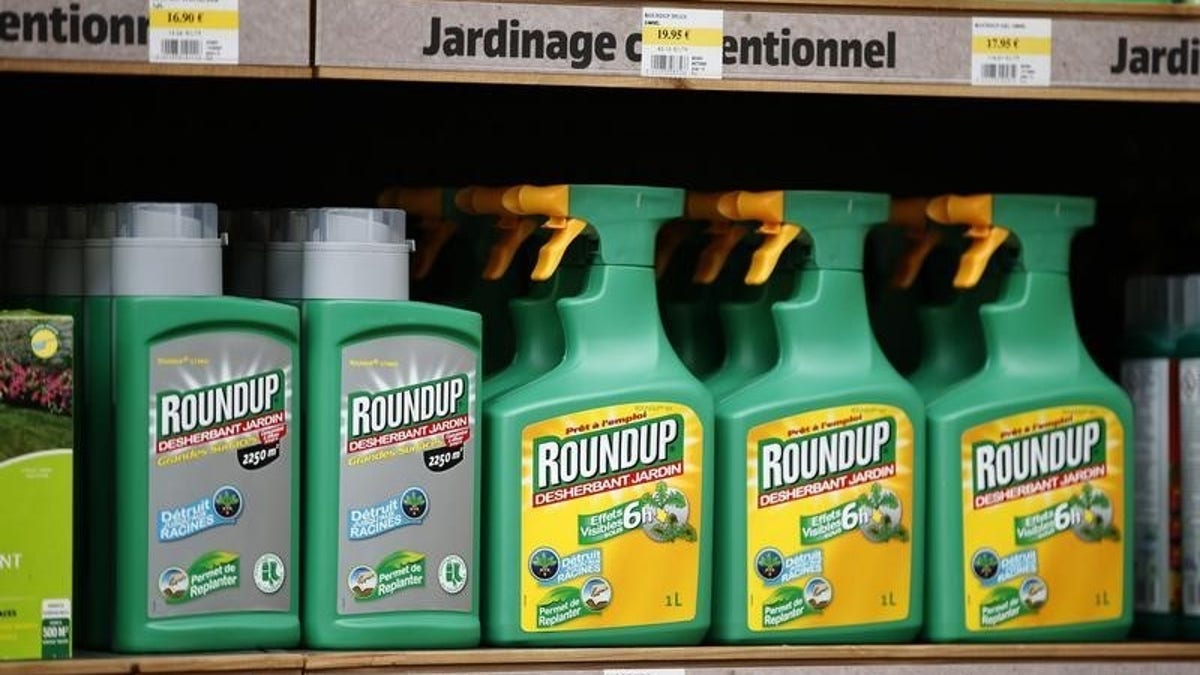
Monsanto's Roundup weedkiller atomizers are displayed for sale at a garden shop at Bonneuil-Sur-Marne near Paris, France, June 16, 2015. REUTERS/Charles Platiau (Copyright Reuters 2015)
A U.S. farm worker and a horticultural assistant have filed lawsuits claiming Monsanto Co.'s Roundup herbicide caused their cancers and Monsanto intentionally misled the public and regulators about the dangers of the herbicide.
The lawsuits come six months after the World Health Organization's cancer research unit said it was classifying glyphosate, the active weed-killing ingredient in Roundup and other herbicides, as "probably carcinogenic to humans."
One suit, filed in U.S. District Court in Los Angeles on Sept. 22, names as plaintiff 58-year-old Enrique Rubio, a former farm worker in California, Texas and Oregon who over several years labored in fields of cucumbers, onions and other vegetable crops.
His duties included spraying fields with Roundup and other pesticides before Rubio was diagnosed with bone cancer in 1995, the lawsuit states.
A separate lawsuit making similar claims was filed the same day in federal court in New York by Judi Fitzgerald, 64, who claims she was exposed in the 1990s to Roundup when she worked at a horticultural products company. Fitzgerald was diagnosed with leukemia in 2012.
Attorney Robin Greenwald, one of the attorneys who brought Rubio's case, said on Tuesday that she expects more lawsuits to follow because Roundup is the most widely used herbicide in the world and the WHO cancer classification gives credence to long-held concerns about the chemical.
"I believe there will be hundreds of lawsuits brought over time," said Greenwald.
Monsanto spokeswoman Charla Lord said that the claims are without merit and that glyphosate is safe for humans when used as labeled.
"Decades of experience within agriculture and regulatory reviews using the most extensive worldwide human health databases ever compiled on an agricultural product contradict the claims in the suit which will be vigorously defended."
The lawsuits claim that Roundup was a "defective" product and "unreasonably dangerous" to consumers, and that Monsanto knew or should have known that glyphosate could cause cancer and other illnesses and injuries, failing to properly warn users of the risks.
The lawsuits claim the Environmental Protection Agency changed an initial classification for glyphosate from "possibly carcinogenic to humans" to "evidence of non-carcinogenicity in humans" after pressure from Monsanto.
WHO scientists cited several studies showing cancer links to glyphosate, though Monsanto has said the findings are wrong.
Since the WHO action, some product liability lawyers have been seeking out plaintiffs for potential class-action lawsuits over glyphosate, postings on legal websites show.
(Reporting By Carey Gillam in Kansas City, Mo.; Editing by Cynthia Osterman)